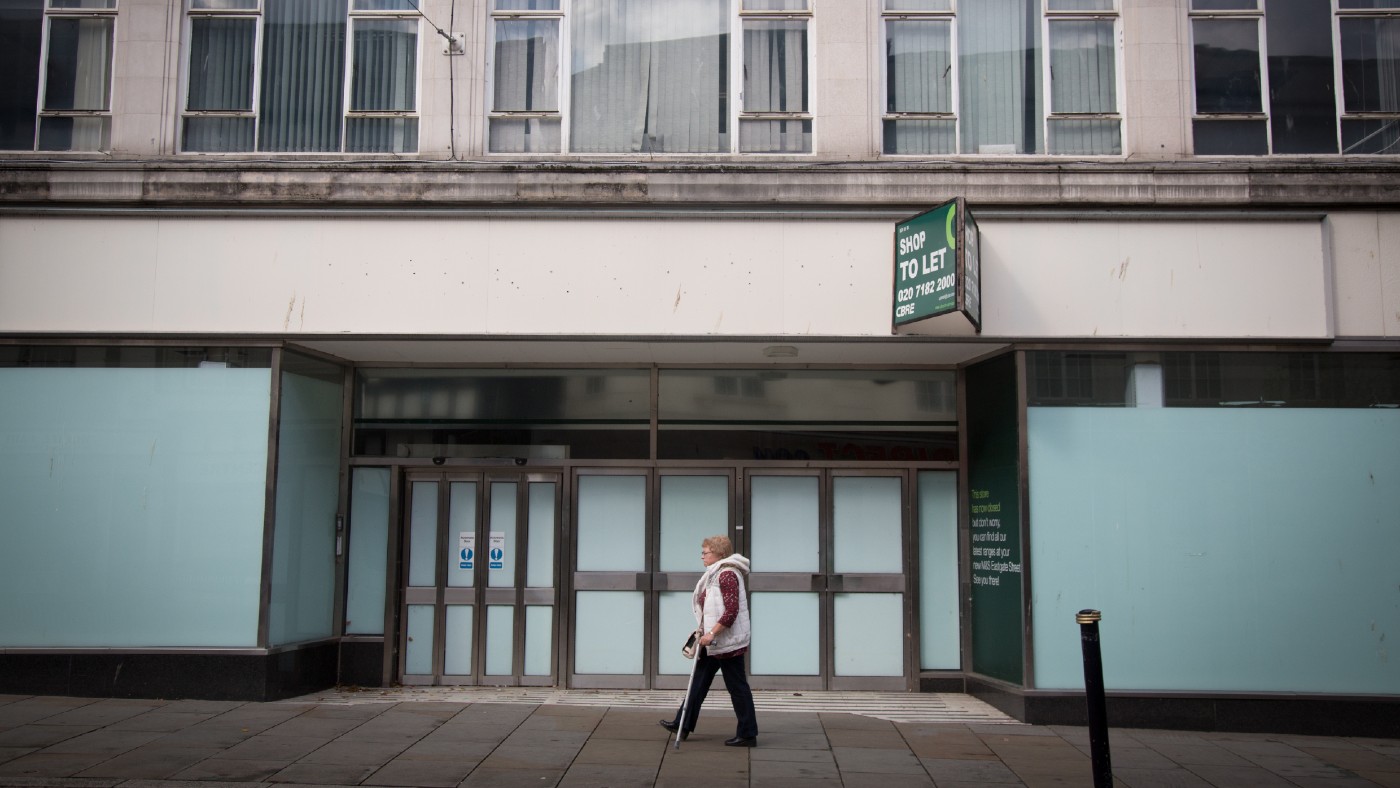Repurposing empty shops: the future of the British high street
Entertainment, experiences and homes are earmarked to replace vacant retail sites

A free daily email with the biggest news stories of the day – and the best features from TheWeek.com
You are now subscribed
Your newsletter sign-up was successful
With the UK going in and out of lockdowns due to Covid-19, the rate of retail store vacancies has “surged”, says Retail Gazette’s Sahar Nazir. Vacancy rates on British high streets had already been evident in the past few years due to the rise in online shopping, but this was “undoubtedly accelerated by the pandemic over the last 13 or so months”.
According to data from the British Retail Consortium, around one in seven shops in England, Scotland and Wales were empty as of March 2021, Drapers reports. Overall vacancy rates of shops increased to 14.1% in the first three months of 2021 – this was up from 13.7% in the previous quarter.
From homes to entertainment, a number of different plans have been suggested to repurpose empty shops – here we take a look at what is earmarked to save the British high street.
The Week
Escape your echo chamber. Get the facts behind the news, plus analysis from multiple perspectives.

Sign up for The Week's Free Newsletters
From our morning news briefing to a weekly Good News Newsletter, get the best of The Week delivered directly to your inbox.
From our morning news briefing to a weekly Good News Newsletter, get the best of The Week delivered directly to your inbox.
500,000 homes on the high street?
Last summer the government unveiled “radical and necessary” reforms to England’s planning system with Boris Johnson declaring an aim to “build, build, build” new homes, schools, hospitals, offices and shops.
Under the proposed new system, greater freedoms will be granted for buildings and land in town centres to change use without planning permission, so vacant and redundant buildings can be turned into homes.
Even before Covid, 25-40% of retail space was “no longer viable or needed”, the Centre for Policy Studies said in a report published last week. “Yet councils are doing little to ensure these vacant properties are being converted or redesignated.”
A free daily email with the biggest news stories of the day – and the best features from TheWeek.com
In the report the CPS argues that the “challenges of the pandemic” can be turned into an “opportunity to revive” Britain’s high streets, communities and commercial centres. It suggests that if retail space is repurposed, it could create around 500,000 homes, or more if the space were converted into flats. It would also “unleash tens of billions in private finance”.
Alex Morton, head of policy at the CPS, said: “There is a real opportunity to boost the levels of homes and encourage mixed-use regeneration as part of the current planning reforms.”
Mixed-use venues
The collapse of major retail brands such as Arcadia and Debenhams has left huge empty spaces on high streets and in commercial centres around the UK. The FT says this has “magnified a problem for landlords”: what to do with the glut of redundant retail space tainting Britain’s towns?
Many sites vacated by department stores could become mixed-use venues with some retail, a larger contingent of leisure businesses and offices on the upper floors.
One such mixed-use project has been revealed in Northern Ireland. Plans have been submitted for the long-awaited redevelopment of the former BHS shop in Belfast city centre and the 70,000 sq ft site could be developed into a mixed-use building, including retail, leisure, and the creation of a rooftop area for food and drink, the Belfast Telegraph reports.
“Town centres need to have a community hub,” Timpson chairman John Timpson told Wired, “with shops alongside medical centres, entertainment venues, restaurants and cafes – all sorts of things that people will go to”.

Entertainment and experiences
The retail property boom is “now over”, says the BBC’s Emma Simpson, and “many of our town centres will have to find a new purpose”.
One solution for ghostly town centres is “experiential leisure” companies, which are “betting on pent-up demand for social activities”, the FT says. For example the 80,000 sq ft former Debenhams store in Wandsworth has been taken over by trampoline company, Gravity, in a £4m joint venture with the landlord Landsec and investment company Invesco.
The escalators are the “only trace of the former department store which remain”, Simpson said on a visit to Gravity Southside, which opens in August. And all four floors are now being “transformed into a high-tech entertainment venue”.
According to the Gravity website there will be eight unique experiences under one roof, including e-karting, bowling, street golf and AR digital darts, at London’s “first active entertainment venue”.
“We’re creating a department store of fun,” Michael Harrison, the co-founder of Gravity, told the BBC. “We have three bars, two restaurants, go-karting, a bowling alley, huge screens to watch sporting events and adventure golf. This is the future of the high street. It’s about experience.”